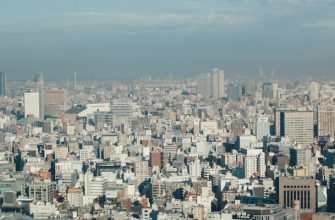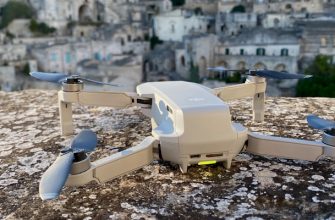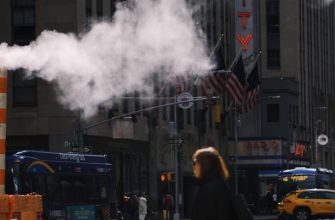- Understanding the Types of Air Purifiers: Which One Is Right for You?
- Key Features to Consider When Selecting an Air Purifier
- Assessing Your Apartment’s Size and Air Quality Needs
- The Importance of Filter Types: HEPA vs. Activated Carbon
- Budgeting for Your Air Purifier: Finding the Best Value
- Maintenance Tips for Keeping Your Air Purifier Effective
Understanding the Types of Air Purifiers: Which One Is Right for You?
Choosing the right air purifier for an apartment involves understanding the various types available on the market. Each type of air purifier is designed to address specific air quality concerns, making it essential to select one that aligns with individual needs.
- HEPA Air Purifiers: These devices are highly effective in capturing small particles, including dust, pollen, and pet dander. Ideal for allergy sufferers, HEPA purifiers can remove up to 99.97% of pollutants down to 0.3 microns.
- Activated Carbon Air Purifiers: Designed to eliminate odors and volatile organic compounds (VOCs), activated carbon filters are perfect for kitchens and homes with pets. They absorb harmful gases, ensuring a fresher indoor environment.
- UV-C Light Air Purifiers: Utilizing ultraviolet light, these purifiers kill bacteria, viruses, and mold spores. They are especially beneficial in homes with vulnerable individuals, as they help maintain a healthier atmosphere.
- Ionic Air Purifiers: These devices release negatively charged ions that attach to airborne particles, causing them to clump together and fall to the ground. While they can reduce dust and allergens, they may also produce ozone, which can be a concern for some users.
- Hybrid Air Purifiers: Combining multiple filtration methods, hybrid models often include HEPA, activated carbon, and UV-C technologies. They provide comprehensive air purification, making them suitable for various air quality issues.
When selecting an air purifier, consider factors such as room size, specific pollutants of concern, and the presence of allergies or sensitivities. Each type of air purifier offers unique benefits, making it crucial to identify personal air quality needs before making a decision.
Key Features to Consider When Selecting an Air Purifier
When selecting an air purifier for an apartment, several key features must be taken into account to ensure optimal air quality. Understanding these features can significantly enhance the effectiveness of an air purification system.
- Filtration System: A high-quality filtration system is crucial. Look for air purifiers that utilize HEPA filters, which can capture 99.97% of particles as small as 0.3 microns. This ensures that allergens, dust, and pollutants are effectively removed from the air.
- Airflow Rate: The Clean Air Delivery Rate (CADR) indicates the volume of clean air produced by an air purifier. A higher CADR rating means the unit can purify air more efficiently, making it suitable for larger spaces.
- Noise Levels: Noise output is an important consideration, especially for bedrooms or quiet areas. Many modern air purifiers operate quietly, particularly on lower settings, ensuring minimal disruption.
- Size and Portability: The dimensions and weight of the unit matter. A portable air purifier can be moved from room to room, allowing for versatile usage throughout the apartment.
- Maintenance Requirements: Regular maintenance is vital for optimal performance. Consider the ease of replacing filters and the frequency of maintenance needed to keep the air purifier functioning well.
- Additional Features: Many air purifiers include smart features such as air quality sensors, remote control capabilities, and programmable timers, enhancing convenience and control over air quality.
By focusing on these key features, selecting the right air purifier becomes a more informed decision, ultimately leading to improved air quality and a healthier living environment in an apartment.
Assessing Your Apartment’s Size and Air Quality Needs
When selecting the ideal air purifier for an apartment, it is crucial to assess both the size of the space and the specific air quality requirements. Understanding these factors can significantly enhance the effectiveness of the chosen air purification system.
- Measuring Apartment Size: Begin by measuring the square footage of the apartment. This information is essential as air purifiers are often rated for specific room sizes. Choosing a unit that matches or exceeds the room’s dimensions ensures optimal performance.
- Identifying Air Quality Needs: Investigate the common pollutants present in the apartment. Common allergens, dust, pet dander, smoke, and chemical vapors can affect air quality. Knowing the types of contaminants allows for a more informed decision on the type of filtration technology required.
- Consider Ceiling Height: Don’t forget to factor in the ceiling height. High ceilings can affect air circulation, which may necessitate a more powerful air purifier to maintain excellent air quality.
- Evaluate Usage Patterns: Analyze the daily usage of each room. High-traffic areas may require a more robust air cleaning solution compared to seldom-used spaces. This assessment helps in determining whether multiple units are necessary for comprehensive coverage.
Ultimately, assessing the apartment’s size and air quality needs will guide the selection of the most suitable air purifier, ensuring that the investment contributes to a healthier living environment free from airborne pollutants.
The Importance of Filter Types: HEPA vs. Activated Carbon
When selecting an air purifier for an apartment, understanding the significance of filter types is crucial. Two of the most common filters used in air purifiers are HEPA and activated carbon filters. Each serves a unique purpose and offers distinct benefits in improving indoor air quality.
- HEPA Filters: High-Efficiency Particulate Air (HEPA) filters are designed to capture 99.97% of particles that are 0.3 microns or larger. This includes dust, pollen, pet dander, and even certain bacteria and viruses. Their effectiveness makes them ideal for allergy sufferers and those seeking to remove airborne pollutants.
- Activated Carbon Filters: Activated carbon filters excel at adsorbing gases and odors. They contain a porous material that attracts and holds volatile organic compounds (VOCs), smoke, and unpleasant smells. These filters are particularly beneficial for eliminating odors from cooking, pets, and cleaning products.
Choosing the right type of filter can significantly enhance the performance of an air purifier. For comprehensive air purification, many models combine both HEPA and activated carbon filters. This combination ensures the removal of particulate matter while effectively addressing odors and harmful gases.
In summary, the choice between HEPA and activated carbon filters depends on the specific air quality needs of the apartment. Understanding the filtering capabilities of each type ensures a healthier living environment, ultimately leading to better overall well-being.
Budgeting for Your Air Purifier: Finding the Best Value
When considering an air purifier for residential spaces, budgeting is a crucial aspect that can significantly impact the choice. Understanding the initial purchase cost, ongoing maintenance expenses, and energy consumption helps in finding the best value for an air purifier.
- Initial Cost: The market offers a wide range of air purifiers, from budget-friendly options to high-end models. It is essential to evaluate features such as filtration technology, room size suitability, and brand reputation when determining initial costs.
- Maintenance Expenses: Regular maintenance is necessary for optimal performance. This includes the replacement of filters, which can vary in price depending on the type and frequency of replacement. Budgeting for these ongoing costs ensures that the air purifier remains effective over time.
- Energy Consumption: Energy efficiency is another important factor when budgeting for an air purifier. Models with Energy Star ratings typically consume less electricity, reducing long-term operational costs. Calculating the estimated annual energy usage can aid in selecting an economical option.
- Long-Term Value: The best value is often found in air purifiers that balance upfront costs with long-term savings. Investing in a reliable air purifier that requires minimal maintenance and has a low energy footprint can lead to significant savings in the long run.
In summary, budgeting for an air purifier involves evaluating initial costs, ongoing maintenance, and energy efficiency. By considering these factors, it is possible to identify a high-quality air purifier that delivers exceptional performance without overspending. This strategic approach ensures that the chosen air purifier not only fits the financial plan but also enhances indoor air quality effectively.
Maintenance Tips for Keeping Your Air Purifier Effective
Maintaining an air purifier is essential for ensuring its optimal performance and longevity. Regular upkeep not only enhances air quality but also prolongs the lifespan of the device. Here are some crucial tips for effective maintenance of air purifiers:
- Regular Filter Replacement: One of the most critical aspects of air purifier maintenance is timely filter changes. Depending on the model and usage, filters should typically be replaced every 6 to 12 months to maintain efficiency.
- Cleaning the Pre-Filters: Many air purifiers come equipped with pre-filters that capture larger particles. These should be cleaned or replaced regularly to ensure that the main filter operates effectively.
- Monitor Air Quality: Keeping track of indoor air quality can help determine when to clean or replace filters. Many modern air purifiers have built-in air quality sensors that provide real-time data.
- Keep Surroundings Clean: Regularly dusting and vacuuming the area around the air purifier can prevent dust accumulation and enhance the overall air purification process.
- Avoid Blockages: Ensure that the air intake and outlet are free from obstructions. A clear path allows the air purifier to function efficiently and maintain optimal airflow.
- Periodic Deep Cleaning: Periodically, deep cleaning of the air purifier, including the exterior and any detachable parts, can help maintain its aesthetic and operational integrity.
Following these maintenance tips for air purifiers will ensure that the device continues to provide clean and fresh air in the apartment. Regular upkeep is key to maximizing the effectiveness of an air purifier, thereby improving indoor air quality and creating a healthier living environment.








